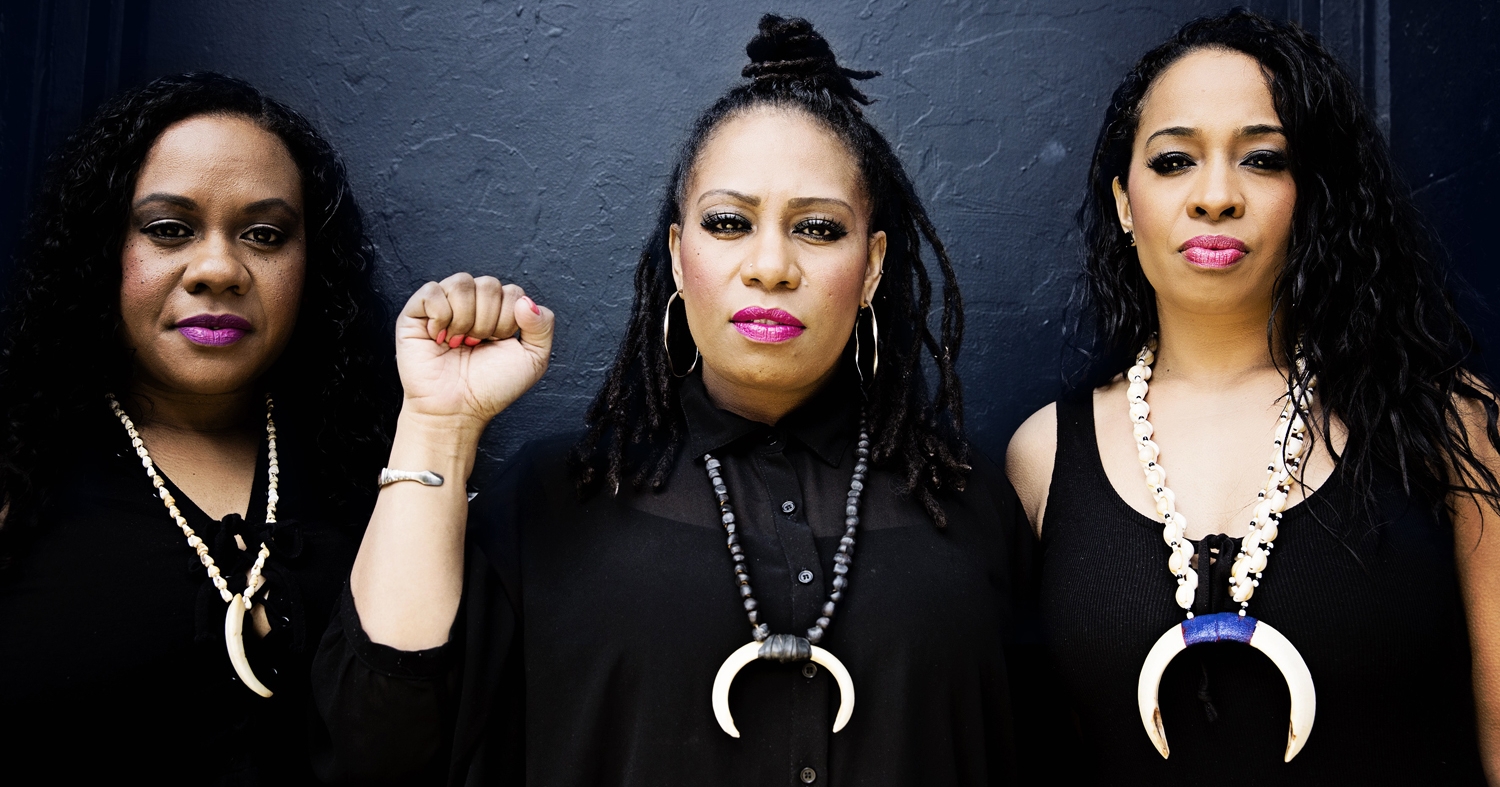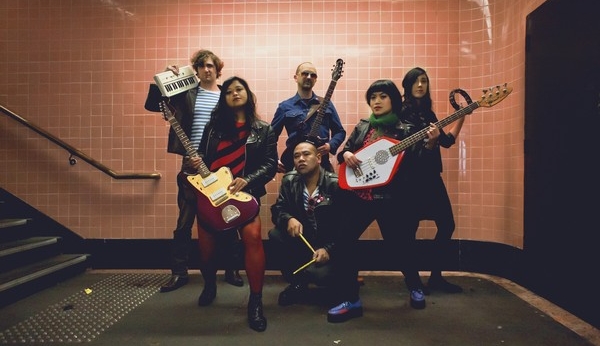They’re three West Papuan singers with a powerful message – stand strong for a free West Papua. The now Australian-based family has endured many hardships through their lineage, which The Black Sistaz communicate through their music as one of a journey of living a life in exile. They’re a celebration of identity with a strong legacy to continue.
When initially coming up with the idea for The Black Sistaz, Lea Rumwaropen says, “[We’ve been] doing this since we were born. We’ve always wanted to do this music thing together. The name came from our father’s band, The Black Brothers so we thought it was always fitting to be The Black Sistaz.”
They are preparing for their performance at the Women of The World festival. “The main thing I love about this festival is having a space to meet, learn and be encouraged by powerful women from all over the world,” Lea says.
“When you’re talking about social justice and your people living under intimidation and you’re trying to spread this message through music you feel a little isolated.
“Meeting incredible women and knowing they are going to be around you, you feel part of a bigger and greater movement. There are a lot of women doing the same thing as you, so you feel encouraged and supported by that.”
This festival has an incredible lineup of women, all of which Lea is inspired by. “I’m really looking forward to Elaine Brown. She is the first girl from The Black Power Movement, who’s in her 70s now and still going strong. I can’t wait to meet and hear some truths with her words of wisdom.”
The Black Sistaz music draws from some harrowing personal experiences. “[It’s] highly uplifting but emotional at the same time. Our music takes you through a journey on how we came to live here in Australia. We have records in different languages to those we picked up from having to resettle in different parts of the world, because of what is happening in West Papua.
“We are currently living in exile and not being allowed to go back home due to the political situation. Our father’s band was a lot more powerful and we always knew his legacy was important but it’s not something we want to pass onto our children.
“Unfortunately for us the fight our fathers undertook, we are still fighting and it is still very much relevant today. We want to make sure our next generations don’t have to take the burden of being the voice of West Papua. As we’re still living under Indonesian rule, under fear and intimidation, we want the next generation to be of triumph as opposed to struggle.”
The Black Sistaz have begun a residency at the Highland Bar. “It’s been so great. It’s different to what we’re used to, as we are used to playing with a big eight or nine-piece band but it’s been nice to be able to do it on a smaller scale,” Lea says.
“We’re able to talk about what’s happening in West Papua on a smaller scale and being able to meet people you wouldn’t be able to meet on daily basis. It’s a completely different audience.”
The rest of 2017 is an exciting one for The Black Sistaz. “[We are] raising funds to record an EP that we’re planning to release in December. There’s a lot of writing, collaborating and studio time. Then our focus will be to get our music out there,” Lea says.
“We are planning on releasing a single by May so keep an eye out for that and on our socials to follow what’s happening with us and hopefully to educate everyone about what is happening in West Papua.
“That’s what we’re about, we’re the only women that represent our entire nation and country through music, we’re trying to do everything we can and appreciate every platform that enables us to do so.”
By Giddy Heine

